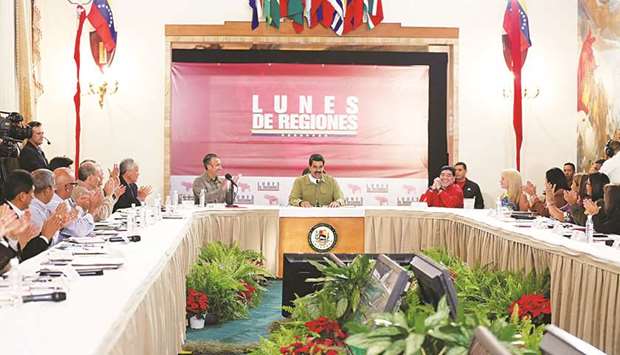US sanctions against Venezuela have accelerated the already catastrophic decline of the oil-rich nation’s economy, and is pushing it to a debt default that economists say could happen as early as this week.
The aim of the latest US action against Caracas is to choke off funding to Venezuela by blocking access to foreign currency.
The Trump administration announced the sanctions August 24 after labelling Venezuelan President Nicolas Maduro a “dictator.” They follow an earlier set imposed on July 31.
Their impact will be in “stopping any new direct investment into the country, and in making any future debt emissions or renegotiation practically impossible,” said Shannon O’Neil, an expert at the Council of Foreign Relations.
The government on Friday called foreign creditors to a meeting on November 13 in Caracas to renegotiate the debt but economists are dubious about the prospects.
Still the situation is critical.
Venezuela is rich in oil resources, with the largest reserves outside of the Middle East, but poor in cash.
The central bank’s stockpiles of foreign currency “are now just $9.7bn, compared to total external debt of about $110bn,” said Edward Glossop, economist at Capital Economics.
Fitch and Standard & Poor’s each cut the rating on Venezuela’s foreign debt on fears default could be imminent, and Moody’s on Monday cut the rating for state oil company PDVSA.
With the situation deteriorating, Andres Abadia, economist at Pantheon Macroeconomics, said, “The most recent sanctions have added to the pressure on Maduro, making it practically impossible to secure funding.”

Venezuela’s President Nicolas Maduro speaks during a meeting in Caracas.
